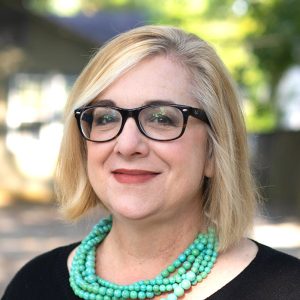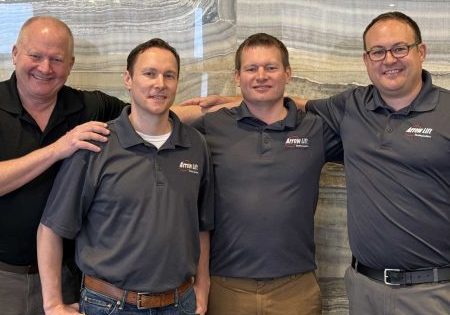A conversation with Maven Group’s Dominik Sachsenheimer
Jupiter, Florida-based Maven Group, LLC, was founded in 2016 by Bill Beaury to help guide owners of independent elevator companies looking to sell through the complex merger-and-acquisition (M&A) process. Beaury was joined later that same year by Dominik Sachsenheimer, who became partner and president of the firm. As an international advisor and consultant, the company facilitates transactions with international or regional elevator companies, as well as private-equity (PE) investors. Particularly for independent players in the elevator industry, a sale is part of a succession plan. But even if it’s not, Maven Group can help.
A native of the Black Forest region of Germany who relocated to the U.S. in the early 2000s, Sachsenheimer is well-versed in the complexities of succession planning and of the elevator industry. Educated at Baden-Wuerttemberg Cooperative State University, he joined the Otis finance department upon relocating to the U.S., progressing up through the ranks to ultimately become Otis’ senior M&A manager for North America. Beaury has praised Sachsenheimer for a “tenacity, vision, analytical skills and financial acumen” that create a comfortable environment for both buyers and sellers. Sachsenheimer (DS) took the time to speak with your author (KW) about succession planning.
KW: Does Maven Group offer general business consulting for succession planning?
DS: Maven Group offers consulting solutions for all types of exit strategies, from internal succession planning between founders and their children or key employees to partial buyouts of owners, all the way to selling the entire company to a third party.
KW: What have you found is the primary reason or reasons for succession planning?
DS: Obviously, every person and every company are different. But most founders and company owners start thinking about succession planning early in their journey, at least conceptually. However, it’s a complicated topic, and many times owners get distracted by the daily challenges of running and growing their companies so that they delay the “tough decisions” until they are close to retirement age. It is always better to plan ahead, especially around a question that will never result in a “one-size-fits-all” response.
While passing a company on to a child might work well in one scenario, another company owner might have multiple children, some of whom work in the company while others are not involved. Other owners might opt to sell their company to their key employees, or even to all employees via an ESOP (Employer Stock Option Plan). Lastly, selling the company to a third party so descendants can inherit the proceeds, rather than the headache of entrepreneurship, is often the best way to go. But again, there really is no such thing as “the right reason” or “the right time” to think about succession planning that can be applied to everyone.
“We now have a wider range of potential partners in the market than ever before, and with the right guidance, founders can therefore pursue all kinds of different succession planning or exit strategies.”
— Dominik Sachsenheimer, president and partner, Maven Group
KW: How often is a sale part of an independent company’s succession planning?
DS: I would estimate that about 10-15% of founders find internal successors, be it children or key employees, while the vast majority of business owners will sell to a third party.
KW: What are the top three goals of those selling for succession-planning reasons, and are they more often than not realized?
DS: All sellers want to achieve a strong valuation for their business. The other two main goals are always that employees and customers will be taken care of after a transaction. In many cases, business owners have worked with their internal teams for decades and want to make sure their employees — who often include relatives of the owner — continue to be treated the same way. Many of these businesses were built around a very loyal customer base, and owners are equally eager to ensure that those customers receive the same level of service post-closing. The vast majority of buyers understand that their investment will only pay off in the long run if the same employees and customers who made a company successful continue to be satisfied. In other words, the incentives for sellers and buyers are often much more closely aligned than one would think.
KW: Are independents looking to pass on wealth to their descendants primarily opting for buyers that are fellow independents, major OEMs or PE firms? What are the pros and cons of each (for the seller)?
DS: Again, each seller’s situation is different and will influence the decision process. Selling to a fellow independent often provides the easiest path to partner with a like-minded business from a cultural perspective, although independent buyers might not have pockets quite as deep as OEMs or PE-backed platforms. OEMs and PE-backed companies offer the sellers, as well as their employees and customers, immediate access to a broader and very professional network of suppliers, technical experts and IT solutions. The great news for owners of independent elevator companies is that we now have a wider range of potential partners in the market than ever before, and with the right guidance, founders can therefore pursue all kinds of different succession planning or exit strategies.
KW: What is your advice for a VT industry professional seeking to sell as part of their succession strategy?
DS: Given the complexity of the topic, it is always a good idea to team up with a professional consultant to assess the current value of the company and to better understand each potential path, internal succession planning or a third-party sale. One should choose a consultant who truly understands valuations and market dynamics among potential buyers within a specific industry, as well as industry-specific pitfalls or obstacles. Over the years, Maven Group has proven to be the partner of choice for many of the most renowned business owners in the elevator trade.
Get more of Elevator World. Sign up for our free e-newsletter.










